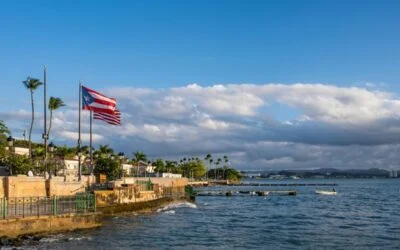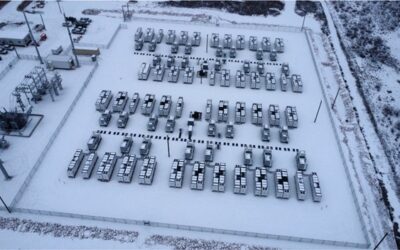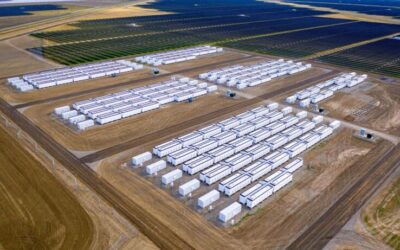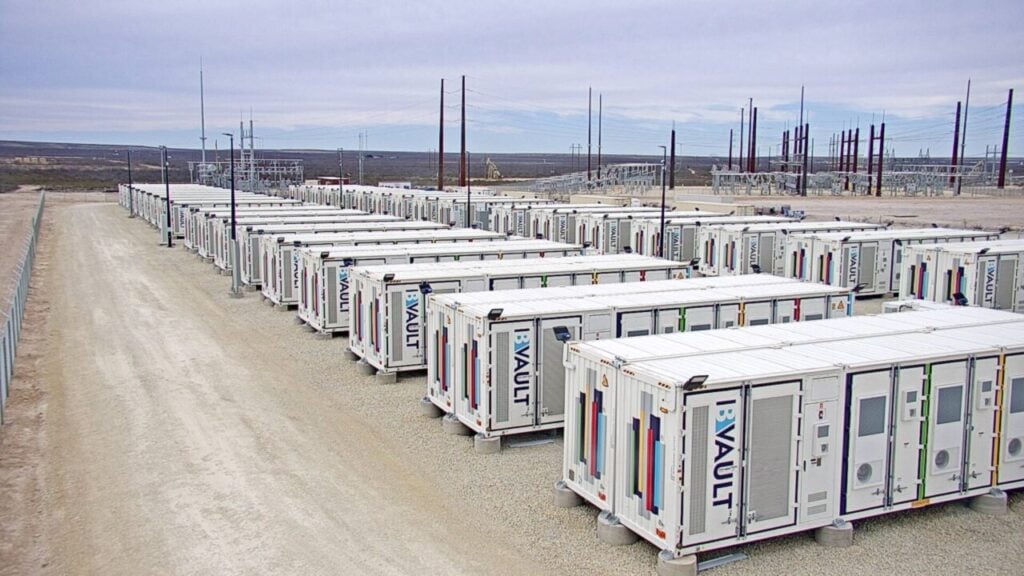
Jupiter Power has completed and put into commercial operation a BESS project provided by technology firm and system integrator Energy Vault in the ERCOT, Texas market.
The St Gall 100MW/200MWh battery energy storage system (BESS) in Fort Stockton was deployed using Energy Vault’s B-VAULT AC block units, pictured above. The company also provided engineering, procurement and construction (EPC) services and its Vault-OS energy management system (EMS).
The company won the contract from BESS developer and operator Jupiter Power two years ago shortly before the companies announced an agreement to deploy 2.4GWh of BESS projects utilising locally manufactured technologies.
They claimed that, as for a project Energy Vault deployed for utility NV Power in Nevada earlier this year, the commissioning process for the St Gall project was a streamlined one. Earlier this year the firm won another 400MWh project from Jupiter Power.
Try Premium for just $1
- Full premium access for the first month at only $1
- Converts to an annual rate after 30 days unless cancelled
- Cancel anytime during the trial period
Premium Benefits
- Expert industry analysis and interviews
- Digital access to PV Tech Power journal
- Exclusive event discounts
Or get the full Premium subscription right away
Or continue reading this article for free
The battery modules for the St Gall project were provided by Chinese battery OEM Rept, as shown in close-up picture (below) of the BESS containers from a video on Energy Vault’s website.
Energy Vault is primarily known for its gravity-based long-duration energy storage (LDES) technology but in the last two years has moved into deploying BESS as well as green hydrogen multi-day energy storage. CEO Rob Piconi told us in an interview last year that this was because the demand in the LDES space hadn’t taken off as fast as expected.
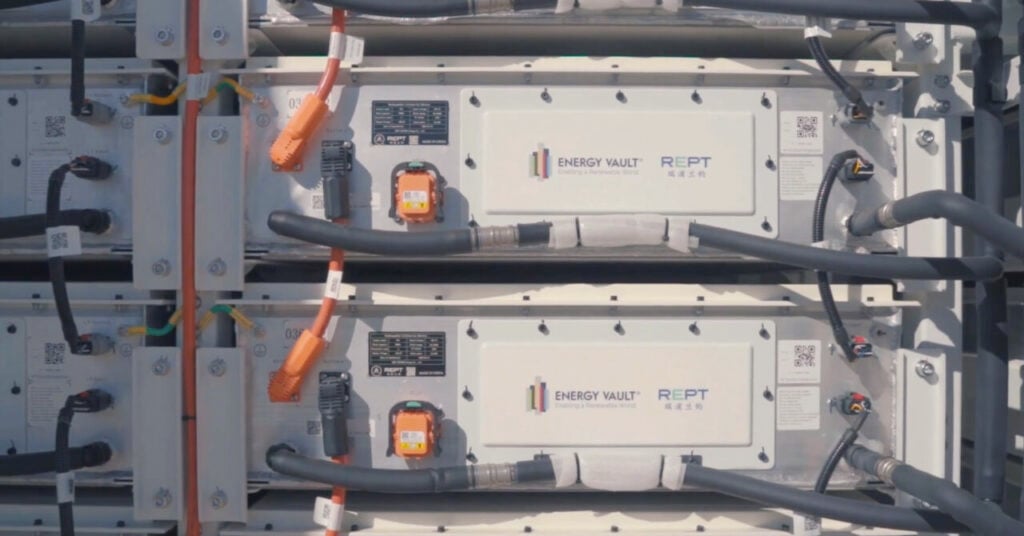
The firm did however see its first large-scale commercial project using its gravity tech commissioned recently, in China, and has partnered with an architecture firm to explore deploying it in skyscrapers.
The company provided an update on its strategy in a recent investor and analyst day, outlining three key tenets for its strategic focus: addressing the world’s largest markets and growth regions, delivering more predictable and recurring revenues, and delivering strong growth and profitability.
It expanded into the Australian market earlier this year with a project order, but revealed that revenues in 2024 would be substantially lower than predicted.
The company is also expanding into asset ownership, initially through a project in California combining BESS and green hydrogen. It would not be the first LDES company to move from being a technology provider only to fully owning assets, with others including vanadium redox flow battery (VRFB) firm Invinity.


